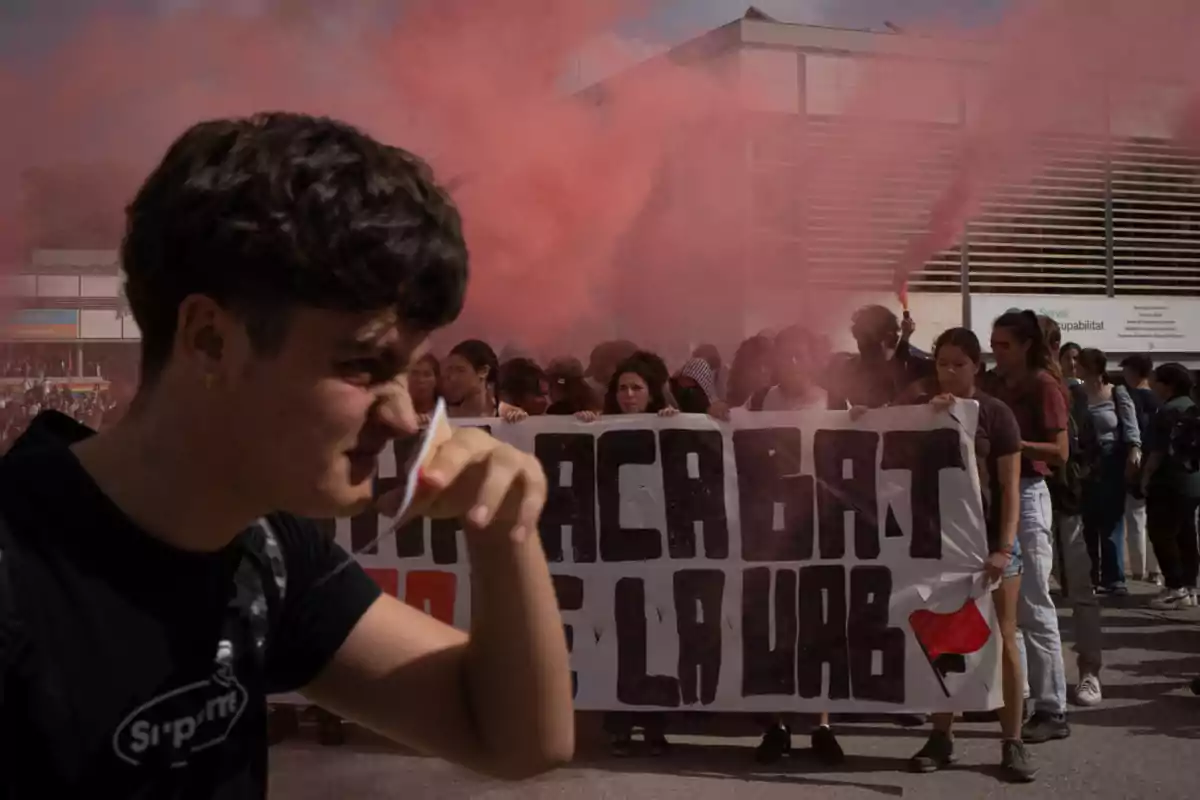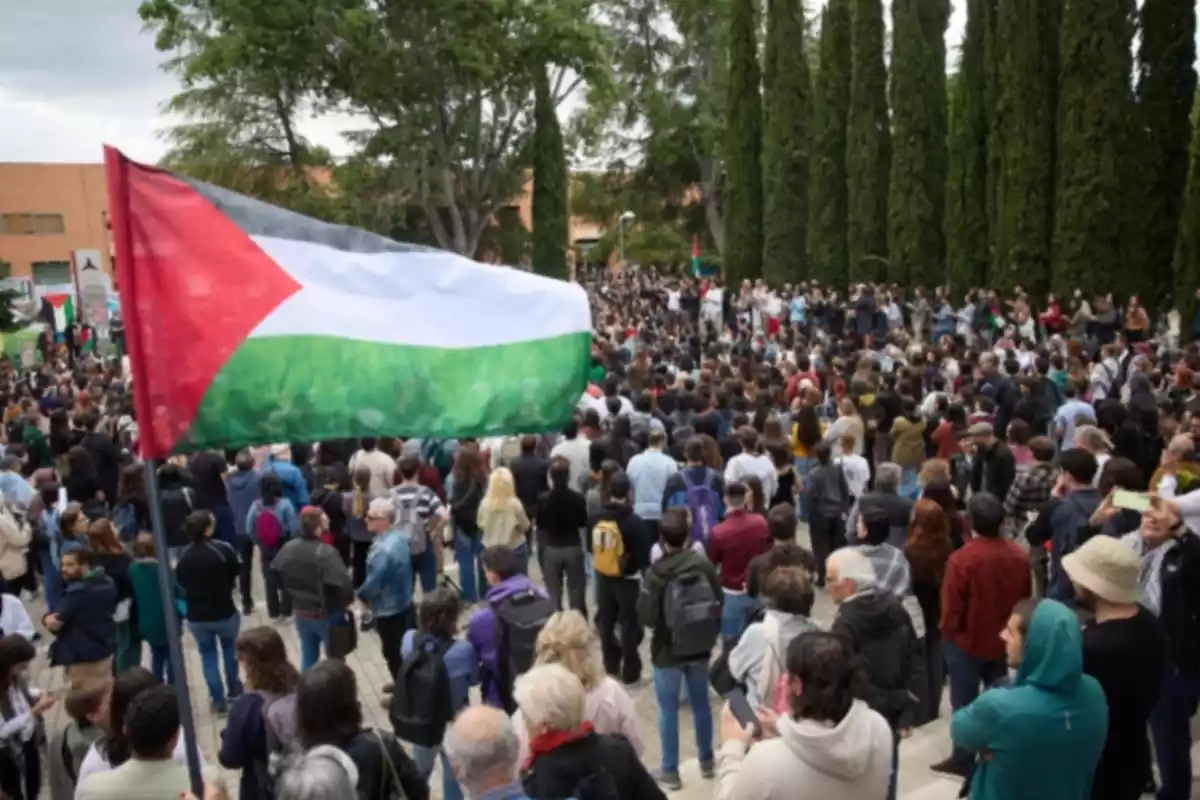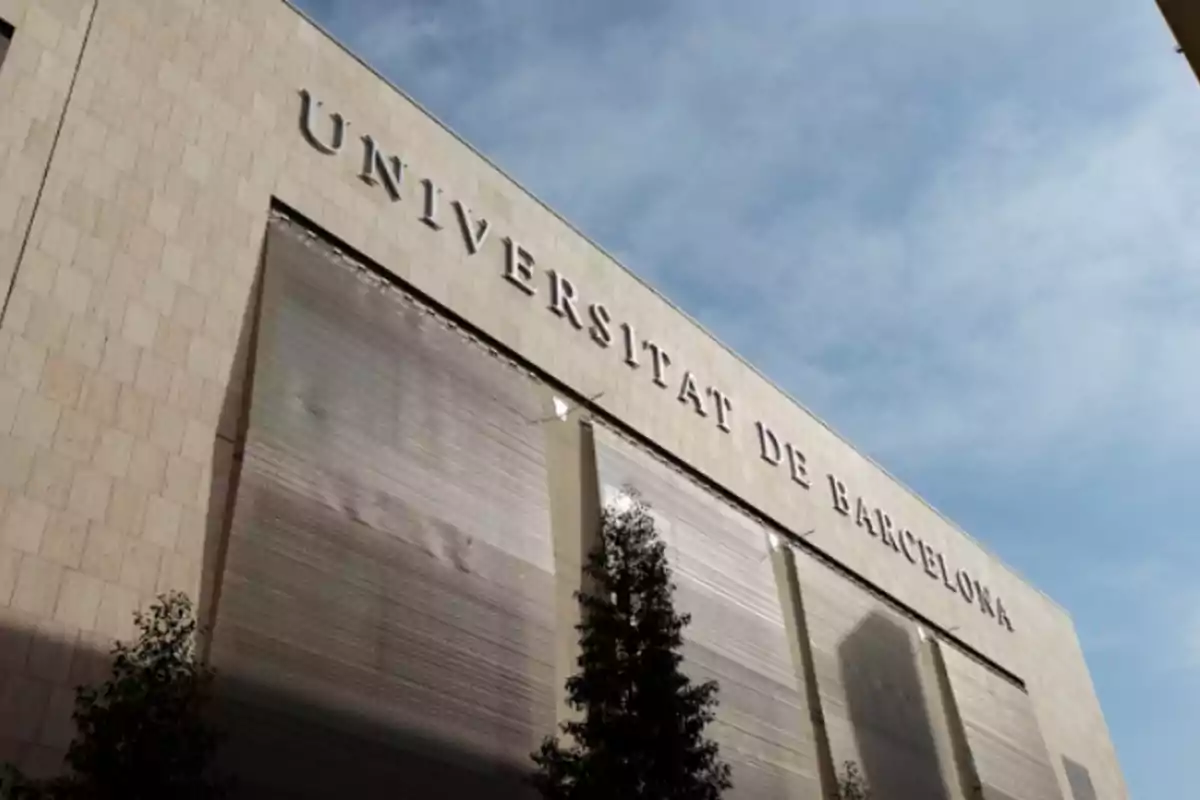
Catalan universities, a reflection of the pro-separatism collapse in Illa's Catalonia
Harassment, cancellations, and students sidelined by the company: the parallel reality of the university
When he arrived at Palau, President Illa found something good: a huge management void, resulting from the ineffectiveness of the pro-separatism decade. However, he also encountered the dense institutional, media, and clientelist network of pro-separatism Catalonia. As is evident, this was the direct result of years of pro-separatism parliamentary majorities.
In this regard, there is much talk, for example, about the press, which Illa keeps funding with millions, or the famous "chiringuitos." In fact, PSC's government has just approved in Parliament the creation of a new diplomatic corps for Catalonia. This was one of ERC's demands to support Illa's investiture.
One of the institutions that best reflect the pro-separatism decay (and one of the least talked about) is the university. The Catalan university very well synthesizes the mix of nationalism and "wokism" that has colored the region in recent years. Like everything in post-separatism Catalonia, the university is also bursting at the seams.

Harassment, cancellation, and radicals
In a few days, the Catalan university has shown its worst inherited dynamics. Suspension of Fernando Paz's conference at UB for considering it "hate speech," threats to Professor Rafael Arenas for a talk with S'ha Acabat, and protests at a business forum with industrial engineering students at UPC. That is, ideological intolerance and separation between the university and business.
To all this is added the physical harassment of student groups that do not align with woke pro-separatism. In fact, the justice system has firmly condemned members of these radical groups on some occasions. Last December, a judge imposed financial penalties on four SEPC members for harassing and assaulting members of S'ha Acabat with the aggravating factor of "discrimination for ideological reasons."

The case of the cancellation of unionist voices, like Rafael Arenas's, has reached Parliament, where Alejandro Fernández reproached Illa for his lukewarmness these days. "Since it affects few people (for now), they look the other way: that's why Illa completely ignores it," said the popular leader:
This very Wednesday, the SEPC union entered the business forum of the Barcelona School of Industrial Engineering to disrupt it. The purpose of this forum is to introduce students to the business ecosystem and offer them internships. With the usual rhetoric, SEPC stated that "an education that allows the intrusion of companies on campuses is an education condemned to operate under market logics":
Beyond the anecdote, this allergy to the presence of companies in the university is symptomatic of the deep detachment from reality of radical students. But the truth is that, for the majority, the university should be a place to achieve a better professional and economic future. And it is no surprise that many of these students come from social sciences areas.
In fact, public faculties of social sciences are the other side of the "chiringuitos" industry. It is most common for all those who populate subsidized entities (pacifism, environmentalism, third sector, etc.) to come from social sciences. This only leads to an endogamous system of feedback, and in passing explains the ideological uniformity in these areas. Cases like DGAIA's are examples of this.
More posts: